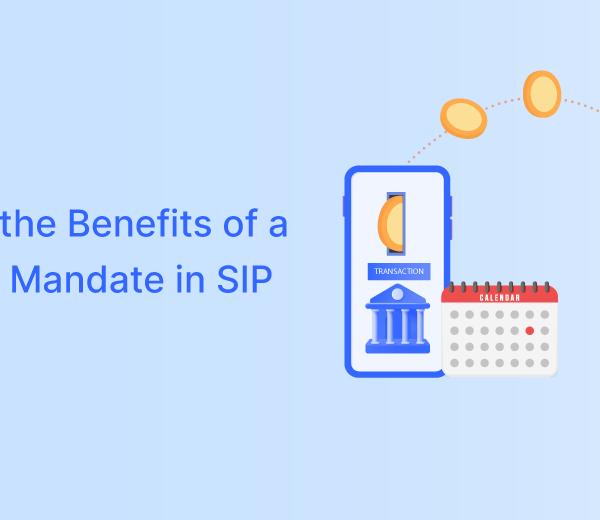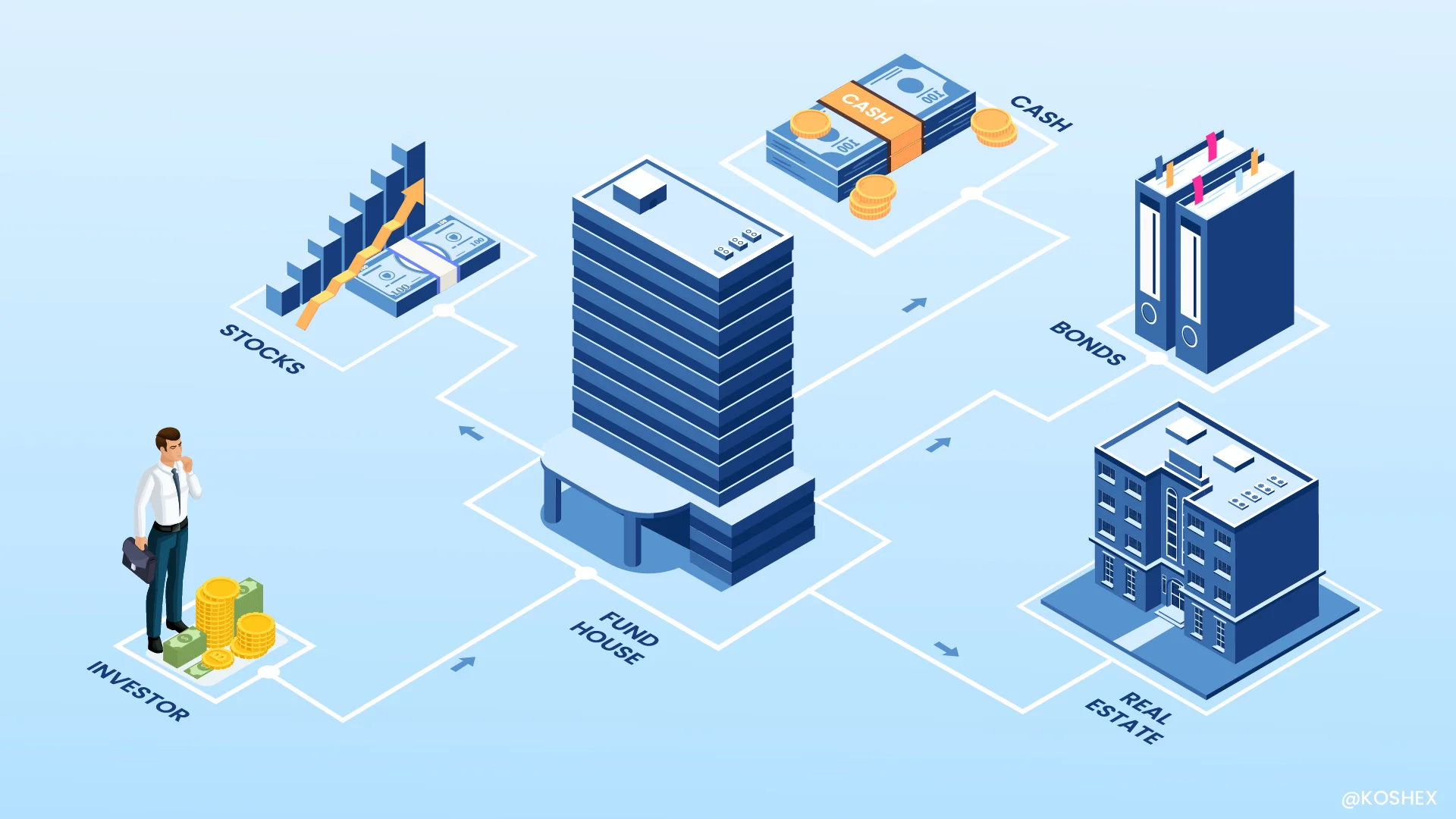How to Save Taxes on Debt Mutual Funds Using Indexation
Debt mutual funds present a great alternative, especially for risk-averse investors. Debt funds are relatively less volatile as compared to their equity counterparts. However, as in the case of any investment avenue, you need to consider the tax on debt mutual fund investments as well.
Taxes have a direct impact on your returns from investments, and if you act smartly, you can save taxes to the maximum. Therefore, a thorough understanding of income tax laws becomes important here. Let’s begin by understanding exactly what debt funds are and their tax implications with Koshex.
What are Debt Mutual Funds?
Debt mutual funds are a popular category of mutual funds that invest in fixed-income securities. This includes government securities (G-Sec), corporate bonds, debentures, Treasury bills, and money market instruments. These securities pay fixed interest to investors at coupon rates at regular intervals. Further, in most cases, the maturity date of these instruments is fixed.
Debt mutual funds are ideally suitable for investors who wish to earn a fixed income and preserve their capital. Thus, they are an ideal choice for risk-averse investors. Also, investors who are willing to diversify their portfolio to reduce their overall portfolio risk can select debt mutual funds. Being relatively less risky than equity mutual funds, they are pivotal in reducing the overall portfolio risk.
Why Should You Invest in Debt Funds?
Here are some of the prominent reasons why you should be investing in debt mutual funds:
- Stability Returns: Debt funds are known for providing stable returns as compared to equity investments. They are a great investment option for risk-averse investors or those looking for a source of regular income while preserving their capital invested.
- Diversification: Debt funds add diversification to your investment portfolio. Including different asset classes, such as equities and debt, helps reduce your overall portfolio risk by spreading investments across various instruments.
- Lower Volatility: Debt funds are generally less volatile than equity mutual funds. They are less sensitive to market fluctuations, and that makes them a more stable option, especially during periods of economic uncertainty.
- Professional Fund Management: Debt mutual funds are managed by professional fund managers who have expertise in fixed-income securities. Their active management aims to maximize your returns while managing the risks effectively.
- Liquidity: Debt mutual funds are highly liquid as they can be bought or sold at the prevailing Net Asset Value (NAV) prices. This makes it an ideal investment option for investors who may need access to their funds in the short term or to meet any contingencies. These mutual funds invest in debt securities that can mature in as short as 91 days. Did you know that liquid funds are a type of debt fund? Well, that explains their liquidity benefits!
How Are Debt Funds Taxed in India?
The tax on debt mutual funds depends on the holding period of these funds. The holding period is the time for which you hold a specific security. Gains from the debt mutual funds are classified as capital gains in your hands.
If you sell your units within 36 months from the date of purchase, then the gains will be taxed as Short term capital gains (STCG). Conversely, if you sell your units after 36 months, then the gains will be taxed as Long-term capital gains (LTCG).
The Short-term capital gains are taxed at the tax rate normally applicable to you. Whereas, in the case of Long-term capital gains from debt funds, a flat rate of 20% was applicable to you. But after the amendment by the Finance Act, 2023, the gains from investment in debt funds will be taxed at the tax rate applicable to you irrespective of the holding period. Let’s understand this in detail.
Indexation and Taxation Benefits in Debt Mutual Funds
Earlier, in the case of LTCG, a tax rate of 20% was applicable along with indexation benefits. Alternatively, you could also pay income tax @10% if you do not opt for indexation benefits. Indexation allows you to adjust the purchase price of your investment according to inflation. The Cost Inflation Index (CII) is used to make the adjustment. Let’s understand this with a simple example:
For example, suppose you purchased 10,000 units of a mutual fund at ₹10 per unit in the year 2010. Thus, your total purchase cost is ₹1,00,000. Now, you sell these units at ₹20 in the year 2015. The CII in the years 2010 and 2015 will be 167 and 254, respectively.
Your indexed cost of acquisition = ₹1,00,000 x 254/167 = ₹1,52,100
LTCG = ₹2,00,000 – ₹1,52,100 = ₹47,900
Tax on LTCG = ₹47,900 x ₹20% = ₹9,580
Without indexation, your LTCG would be ₹1,00,000 and the tax would be ₹10,000.
This is the benefit of indexation.
In the Finance Act, 2023, the government removed indexation benefits in case of long-term capital gains from debt mutual funds. Thus, debt funds owned for over 36 months no longer enjoy indexation benefits. However, this applies only to those funds that invest less than 35% in equity instruments. Further, this change will also apply to exchange-traded funds (ETFs), international funds, gold funds, and certain categories of hybrid funds. However, the proposed changes will not affect investments made before 31 March 2023.
Thus, it can be said that funds that invest more than 35% of their funds in equities will continue to enjoy indexation benefits. The removal of indexation benefits will bring the debt funds at par with fixed deposits in terms of taxability. Debt funds had the upper hand as compared to fixed deposits when it came to taxability, as debt funds enjoyed indexation benefits while fixed deposits did not. But still, they can be ideal to save taxes.
As debt funds are now taxable at the tax rate applicable to you, if your income does not attract tax due to slab benefits, you will not have to pay tax on income from debt mutual funds as well. Further, after the rebate increases to ₹7 lakhs, you can save a lot of taxes under the new rule. Also, if you invested before 31st March 2023, you can continue enjoying the indexation benefits.
Summing Up
If you have invested in debt funds on or before 31st March 2023, then you can reap the income tax benefits associated with long–term capital gains in terms of indexation benefits. Even after 31st March 2023, while the taxation benefits lose their shine for debt funds, these funds are still an attractive avenue for investors looking to earn fixed income, preserve their capital, and not want to take many risks. If you are looking for other fixed income-generating avenues, then fixed deposits can be an attractive option. But is there a platform that allows investing in both of these avenues under a single roof?
Koshex is one of India’s only few platforms that allow you to invest in mutual funds as well as fixed deposits. To allow further diversification, you can also invest in digital gold or smart deposits. With 5000+ different funds to choose from, you can select the one that best suits your investment goals and preferences. Sign up now with Koshex!









Hi Neat post There is a problem along with your website in internet explorer would test this IE still is the market chief and a good section of other folks will pass over your magnificent writing due to this problem